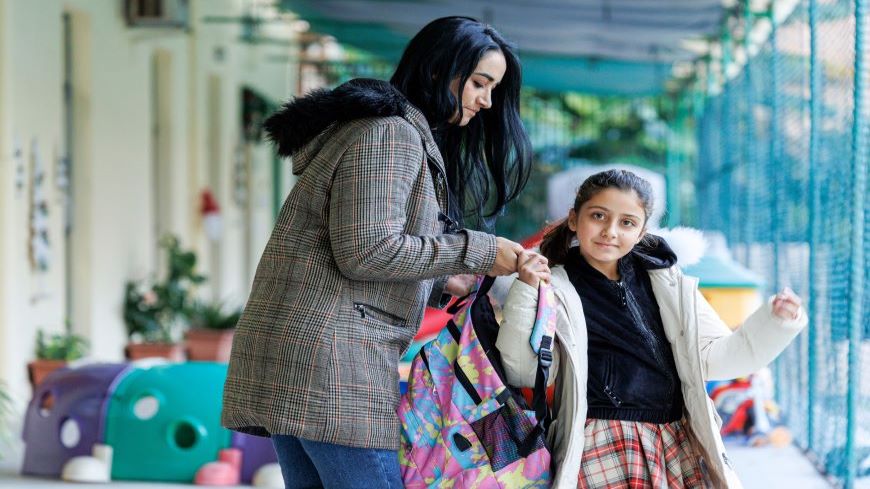Today, the European Committee of Social Rights (ECSR) is publishing its Conclusions 2023 in respect of the articles of the European Social Charter relating to Children, Family and Migrants.
In the framework of the reporting procedure, the ECSR adopted 799 conclusions: 415 conclusions of conformity with the Charter and 384 conclusions of non-conformity concerning: Andorra, Armenia, Austria, Azerbaijan, Bosnia and Herzegovina, Croatia, Cyprus, Czechia, Denmark, Estonia, Georgia, Germany, Hungary, Latvia, Lithuania, Luxembourg, Malta, the Republic of Moldova, Montenegro, the Netherlands, Netherlands Aruba, the Netherlands Curaçao, North Macedonia, Norway, Romania, Serbia, the Slovak Republic, Slovenia, Spain, Sweden, Türkiye, Ukraine and the United Kingdom.
The ECSR found many non-conformities on Article 17 of the Charter related to inappropriate and inadequate monitoring of accommodation facilities for children in an irregular migration situation, whether accompanied or not as well as of measures taken to find alternatives to detention of children in an irregular migration situation. The Committee also noted that in many countries the rate of children at risk of poverty is and remains too high.
Regarding the right of children and young persons to protection, the Committee has observed in a number of State Parties, an inadequate prohibition of employment under the age of 15 and insufficient monitoring of child labour. The ECSR recalls that exceptions concern children employed in prescribed light work, which does not entail any risk to the health, moral welfare, development or education of children. The daily and weekly duration of such work for children under the age of 15 was excessive in several State Parties, permitting beyond 6 hours a day and 30 hours a week during school holidays. In addition, the Committee found in certain States Parties that children still subject to compulsory education were not guaranteed two consecutive weeks of rest during school holidays.
The Committee noted that, in the context of the right of children to be protected against physical and moral dangers within and outside the working environment, many countries failed to report on different issues, the most common of which was on the protection of children from all forms of violence, exploitation and abuse in the digital environment, in particular sexual exploitation and abuse and solicitation for sexual purposes (grooming).
With respect to the rights of employed women to maternity leave and to employment benefits, the main grounds of non-conformity found by the ECSR were related to inadequate protection against dismissal whilst pregnant or on maternity leave and to ceilings on the amount of compensation that may be awarded in the event of unlawful dismissal.
Concerning the right of the family to social, legal and economic protection (Article 16), the Committee noted that in several countries, equal treatment of nationals of other State Parties regarding the payment of family benefits is not ensured due to the excessive length of residence requirement and that family benefits do not cover a significant number of families. In addition, it is also concerned about the weak legal protection of people/families threatened with eviction.
With respect to the guaranties provided by Article 31 of the Charter, the Committee noted a failure to gather data on the average waiting time for the allocation of social housing, as well as inadequate supply of social housing, ineffective remedies for excessive waiting times for social housing, or discrimination as regards access to social housing.
Moreover, the Committee concluded that in certain countries there was inadequate protection regarding the reconciliation of the working and private life for both women and men and that the periods of absence from work of workers with family responsibilities are not considered pensionable.
Nevertheless, the ECSR noted with satisfaction positive developments concerning legislation aimed at helping to bring perpetrators of domestic violence to justice. In some countries, victims and survivors of domestic violence are entitled to a specific paid leave for the purpose of dealing with the issues resulting from domestic abuse. Also, there were positive developments in many countries concerning co-operation between social services of emigration and immigration states.
The European Committee of Social Rights (ECSR) has also published its Findings 2023 in respect of eight States (Belgium, Bulgaria, Finland, France, Greece, Ireland, Italy, and Portugal) which have accepted the collective complaints procedure.
The ECSR found that, although there has been progress in some areas and efforts to bring the situation into conformity, among other issues, the gender pay gap, the housing for Roma, health care discrimination, and inclusive education for children with intellectual disabilities remain persistent problems for which measurable progress needs to be achieved in order to bring the situation in those countries into conformity with the Charter.
The ECSR emphasises the importance of continued efforts to fully align with the European Social Charter's provisions, ensuring the protection and advancement of social rights for all citizens.
Press briefing elements concerning the Conclusions 2023
Press briefing elements concerning the Findings 2023




